Animals
-
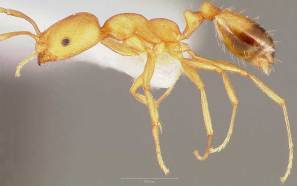 Animals
AnimalsAnt colonies prefer homes infected with fungus
Choosing a new nest site ridden with a potentially deadly fungus may be a way for pharaoh ants to immunize themselves against the pathogen, scientists say.
-
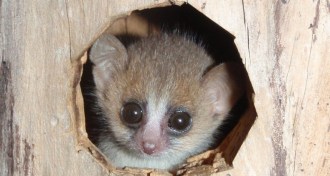 Life
LifeStudy finds lack of evidence for infanticide link to monogamy
A new study contradicts idea that the rise of infanticide among mammals drove the evolution of monogamy.
By Susan Milius -
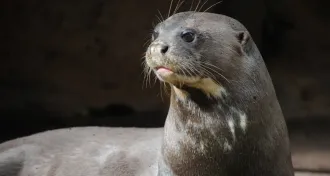 Animals
AnimalsGiant otters hum, scream, say ‘hah’ and more
Often overlooked as vocalists, giant otters make 22 different calls as adults and 11 kinds of baby babble.
-
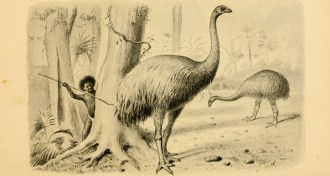 Animals
AnimalsFew humans were needed to wipe out New Zealand’s moa
A new study finds that the Maori population was still small when it managed to drive several species of large, flightless birds extinct.
-
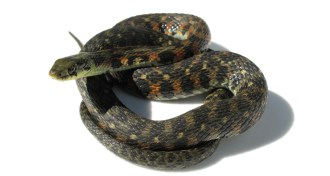 Animals
AnimalsSnake moms-to-be crave toxic toads
The snake Rhabdophis tigrinus seeks out toxic toads to eat when breeding. The snakes can then pass the poisons on to her offspring as chemical defenses.
-
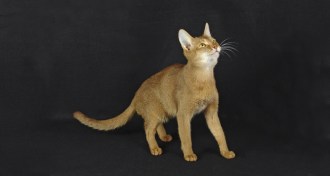 Genetics
GeneticsGenes tell tale of cat domestication
A peek into cats’ genetic makeup may help reveal how hissing wild felines became purring tabbies.
-
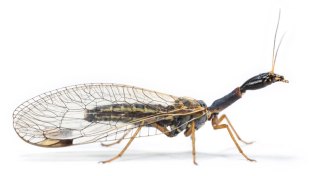 Life
LifeEpic worldwide effort explores all of insect history
A whopper of a genetic analysis fits all living orders of insects into one genealogical evolutionary tree.
By Susan Milius -
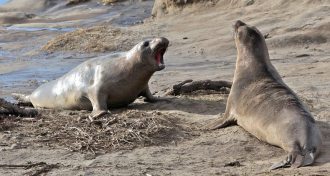 Animals
AnimalsJust enough fat is good for an elephant seal
Fat affects the buoyancy of marine mammals. As elephant seals get fatter, they can spend less energy swimming and more time foraging, a new study finds.
-
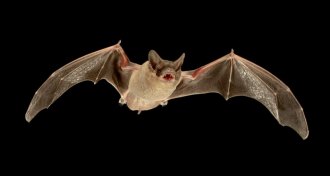 Animals
AnimalsBats jam each other in echolocation battles for food
By blaring a special call at just the right instant, Mexican free-tailed bats can ruin each other’s sonar-guided swoops toward prey.
By Susan Milius -
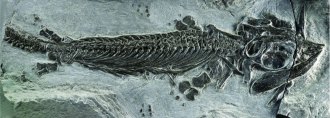 Paleontology
PaleontologyAncient sea creature took to land and sea
A primitive relative of the ichthyosaur had strong bones and big flippers.
By Meghan Rosen -
 Animals
Animals‘Animal Weapons’ examines evolution of natural armor
Biological arms races have led to the evolution of horns, tusks and other extreme armament in the natural world.
-
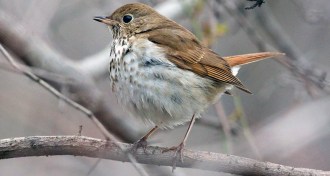 Animals
AnimalsHermit thrushes, humans share some musical basics
The melodious birds share a humanlike bias for notes mathematically related by simple integers.